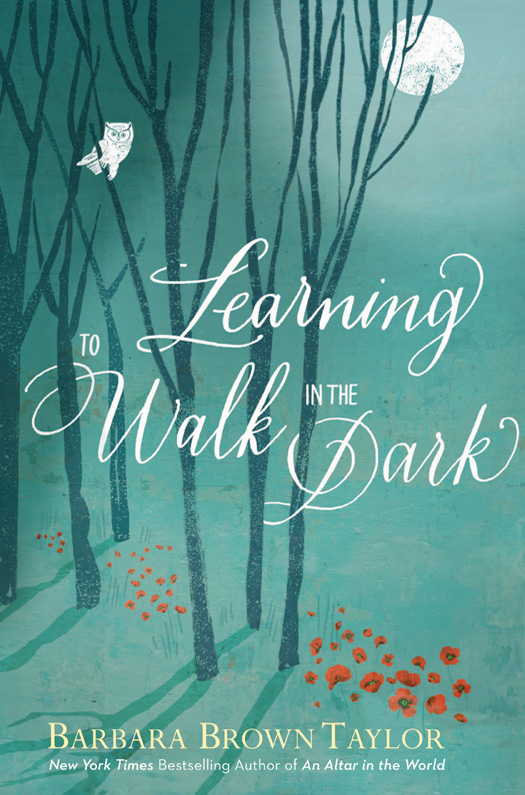
Learning to Walk in the Dark
An Altar in the World
Leaving Church

LEARNING TO WALK IN THE DARK. Copyright 2014 by Barbara Brown Taylor. All rights reserved under International and Pan-American Copyright Conventions. By payment of the required fees, you have been granted the nonexclusive, nontransferable right to access and read the text of this e-book on-screen. No part of this text may be reproduced, transmitted, downloaded, decompiled, reverse-engineered, or stored in or introduced into any information storage and retrieval system, in any form or by any means, whether electronic or mechanical, now known orhere in after invented, without the express written permission of HarperCollins e-books.
HarperCollins website: http://www.harpercollins.com
HarperCollins,  , and HarperOne are trademarks of HarperCollins Publishers.
, and HarperOne are trademarks of HarperCollins Publishers.
FIRST EDITION
Illustrations by Lydia Hess
Library of Congress Cataloging-in-Publication Data is available upon request.
ISBN 9780062024350
EPub Edition February 2014 ISBN 9780062102867
14 15 16 17 18 RRD(H) 10 9 8 7 6 5 4 3 2 1
For all the children of the night
There is a tendency for us to flee from the wild silence and the wild dark, to pack up our gods and hunker down behind city walls, to turn the gods into idols, to kowtow before them and approach their precincts only in the official robes of office. And when we are in the temples, then who will hear the voice crying in the wilderness? Who will hear the reed shaken by the wind?
Chet Raymo, The Soul of the Night
CONTENTS

I will give you the treasures of darkness and riches hidden in secret places, so that you may know that it is I, the LORD, the God of Israel, who call you by your name.
Isaiah 45:3
C ome inside now, its getting dark. That is my mother speaking, saying the same thing she said every night when she looked out the kitchen window and saw that the sun was going down. It did not matter whether the window was in Kansas, Ohio, Alabama, or Georgia. Dark was dark, and she wanted her children inside. It must have cost her a lot to call us, since it meant that the quiet house would soon be filled with the noise of three small, loud girls, but she did it anyway. She loved us enough to let us play outside until the cicadas cranked up and bats started swooping through the sky; then she loved us enough to call us inside so that nothing bad would happen to us in the dark.
The dangerousness of the dark was like the law of gravity. No one could say exactly how it worked, but everyone agreed on it. When night fell, children were gathered inside, front porch lights were switched on, curtains were drawn, and doors were locked. The inside of the house became a showcase of artificial light: the fluorescent ring on the ceiling of the kitchen, 40-watt appliance bulbs in the oven hood, 25-watt bulbs shaped like candles in the dining room chandelier, standard 60-watt bulbs in the lamps in the living room, the phosphorescent glow of the television set in the den. There was nothing you could not do in a house like that. Even if you got up in the middle of the night to go to the bathroom, small night-lights plugged into every baseboard outlet would guide you to your destination like an airplane making a landing after dark.
I never questioned the need for all this light, since the dangerousness of the dark was more apparent to me inside the house than out. After one or the other of my parents had kissed me good night and turned off the light by my bed, there was always a moment of bliss under the tent of my sheets while my eyes adjusted to the low light coming through the window. Had I been an easy sleeper, I might have drifted off on that tide of contentment, but I have never been an easy sleeper. Once the smell of my parents had faded away along with their footsteps; once I could feel their protection dissipate as they moved away from me; once it became apparent to me that they had checked me off their list for the night and had turned their attention to other things, then all the loose darkness in that room started to collect in the closet and under the bed, pulling itself together with such magnetic malevolence that I could not keep my mind away from it.
Without benefit of maturity or therapy, I had no way of knowing that the darkness was as much inside me as it was outside me, or that I had any power to affect its hold on me. No one had ever taught me to talk back to the dark or even to breathe into it. The idea that it might be friendly was absurd. The only strategy I had ever been taught for dealing with my fear of the dark was to turn on the lights and yell for help. Even then, when my parents came back to ask what I was afraid of, they took my answers at face value. There are no monsters under your bed, they assured me, getting down on their knees to look. There are no witches in your closet, they said, opening the door to show me, as if scientific proof would make a bit of difference once they had turned out the lights and left the room again.
Since I am only five years old in this memory, there is no telling what I might have said if they had asked me what color the monsters eyes were, or what the witches were planning to do to me. If they had, I might have learned to become more curious about what the darkness inside me was dishing up. I might have learned to look more deeply instead of looking away, but one thing my parents and I shared was the wish for a quick fix. They wanted to get back to whatever they were doing in the living room and I wanted to stop being afraid, so we settled on a solution that worked for both of us: eliminate the darkness. Leave a light on in my room at night so that it was never dark.
You would have to ask an anthropologist how well this childhood history matches the history of the human race, but when I look around the world today, it seems clear that eliminating darkness is pretty high on the human agendanot just physical darkness but also metaphysical darkness, which includes psychological, emotional, relational, and spiritual darkness. What do I mean by darkness? I guess that depends on what color your monsters eyes are. Most people do not know what they mean by darkness except that they want to stay out of it. Just say the word and the associations begin to flow: night, nightmare, ghost, graveyard, cave, bat, vampire, death, devil, evil, criminal, danger, doubt, depression, loss, fear. Fear is the main thing. Almost everyone is afraid of being afraid. Beyond that, no ones list is exactly like anyone elses. It fits the way a shadow fits, because darkness is sticky. It attracts meaning like a magnet, picking up everything in its vicinity that is not fully lit.
If you decide to read the rest of this book, you will learn plenty about what darkness means to me. For now, it is enough to say that darkness is shorthand for anything that scares methat I want no part ofeither because I am sure that I do not have the resources to survive it or because I do not want to find out. The absence of God is in there, along with the fear of dementia and the loss of those nearest and dearest to me. So is the melting of polar ice caps, the suffering of children, and the nagging question of what it will feel like to die. If I had my way, I would eliminate everything from chronic back pain to the fear of the devil from my life and the lives of those I loveif I could just find the right night-lights to leave on.
Next page
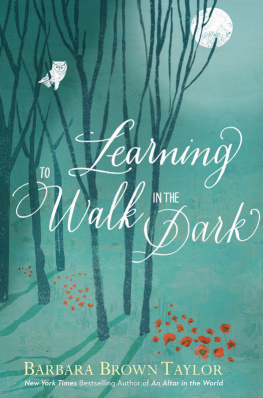

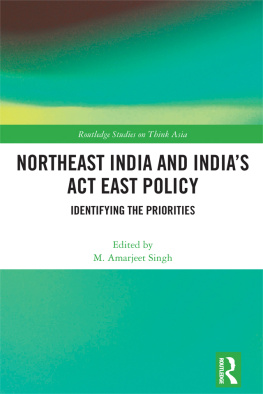
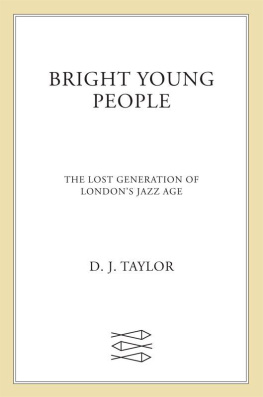

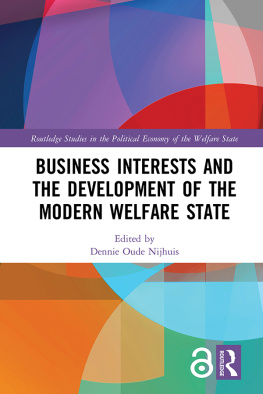
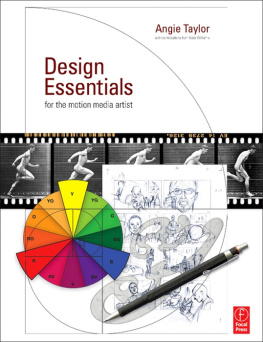
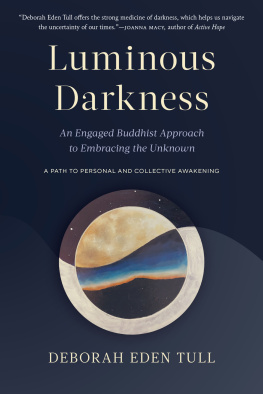
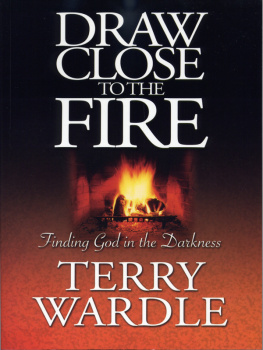

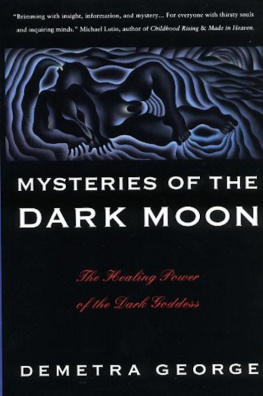
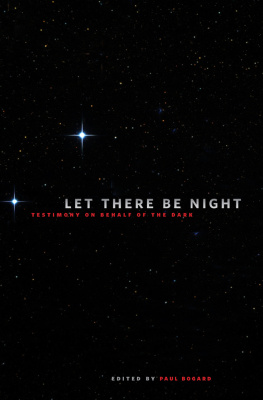
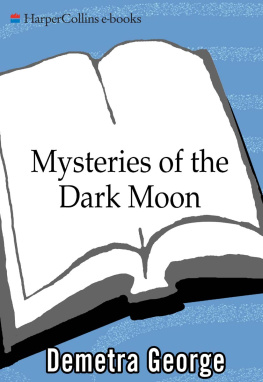
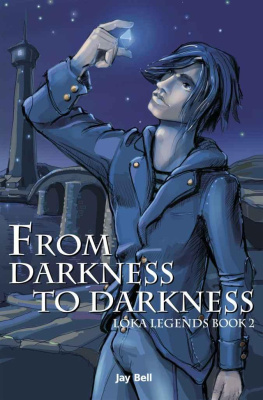
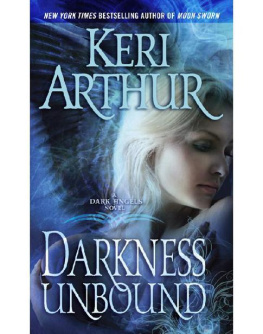
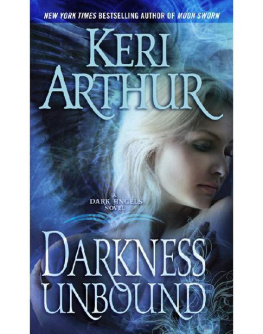


 , and HarperOne are trademarks of HarperCollins Publishers.
, and HarperOne are trademarks of HarperCollins Publishers.